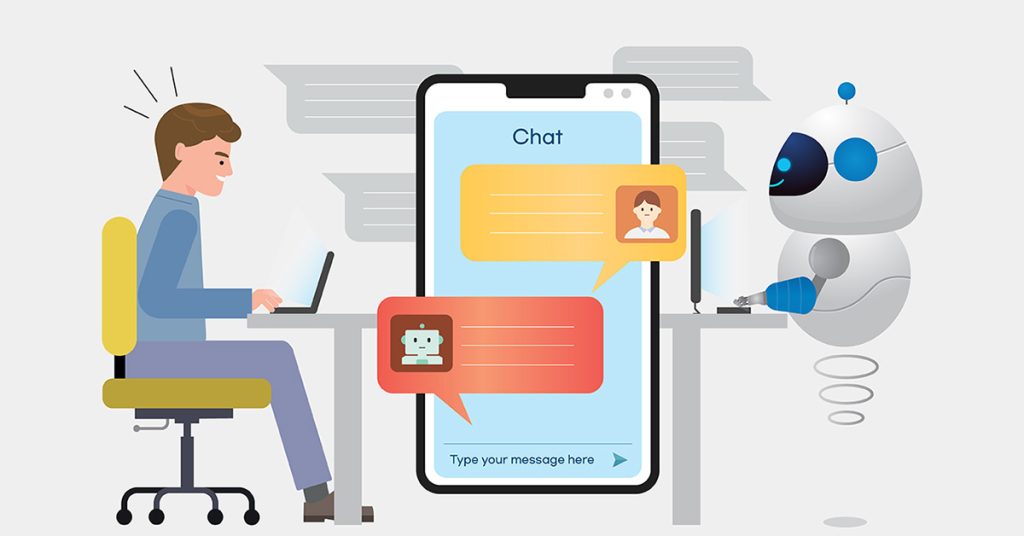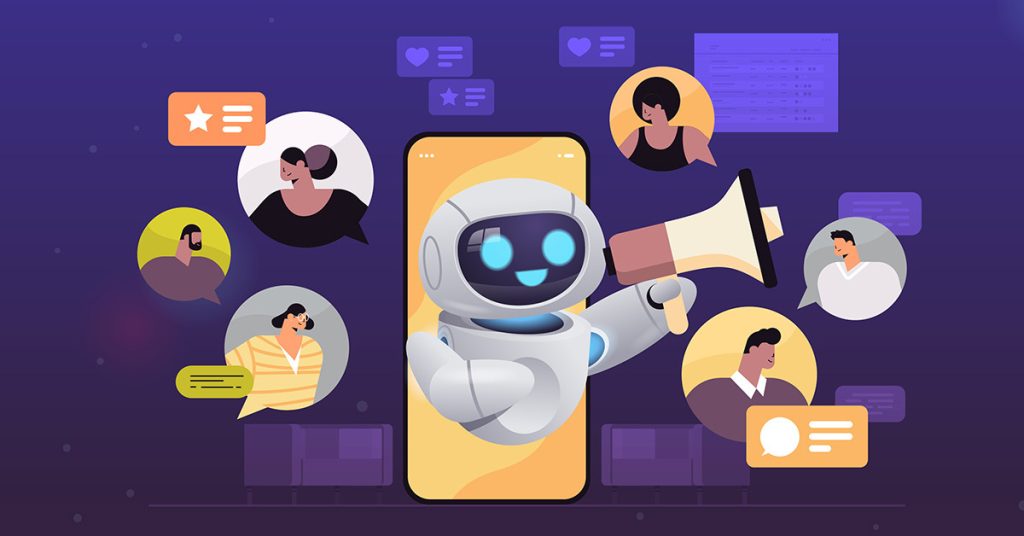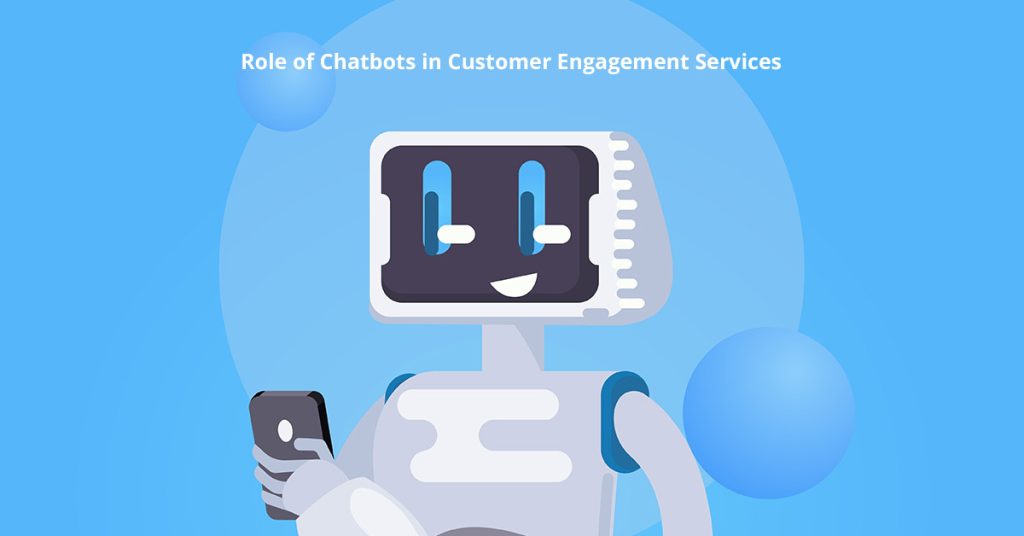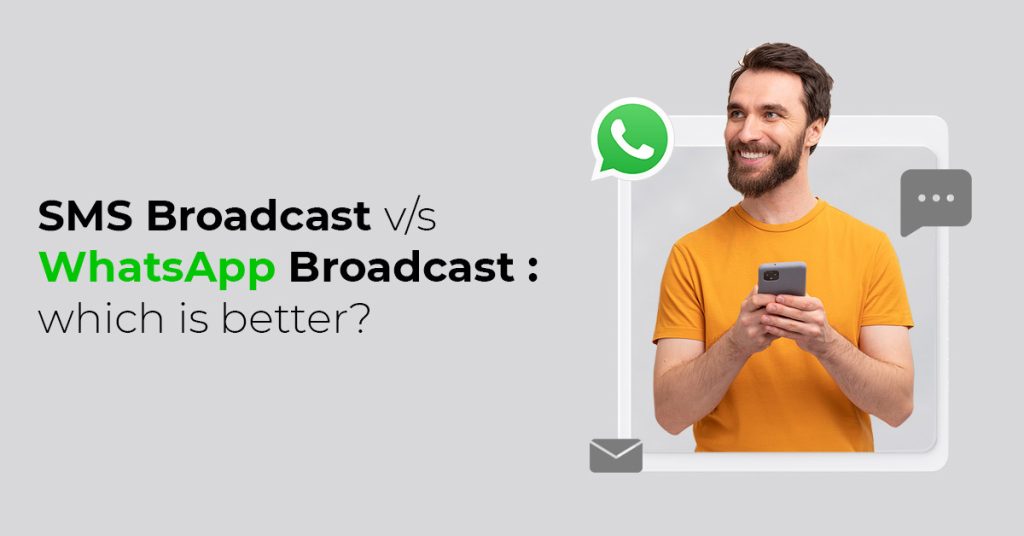- Rise of instant messaging as a dominant communication channel :
- What is Instant Messaging Marketing?
- Instant Messaging Applications : Bringing Businesses Closer to Customers
- Key Trends in Instant Messaging Marketing :
- Types of Instant Messaging Marketing : Finding the Right Approach for Your Business
- Which Type of Instant Messaging Marketing is Right for You ?
- How Can Brands Benefit from Instant Messaging Marketing ?
- 2025 Trends for Instant Messaging Marketing :
- Using Botbuz Chatbot for Instant Messaging Marketing :
Rise of instant messaging as a dominant communication channel :
Essentially, how we talk to each other has dramatically changed. We’re not just emailing or calling anymore; we’re constantly on apps like WhatsApp and Messenger. These apps are super popular because they’re fast, easy to use on our phones, and let us send all sorts of things – text, pictures, videos, you name it. Plus, it feels more personal, like chatting with a friend.
For businesses, this change is huge. Customers expect to be able to reach them quickly and easily. If a business isn’t on these messaging platforms, they’re missing out. People want instant answers and help, not to wait hours for an email reply.
This is where “conversational marketing” comes in. It means using these messaging apps to talk to customers directly. It’s not just about selling; it’s about building relationships. It’s like having a real-time conversation.
To do this well, businesses need to pick the right messaging apps where their customers are. They might use chatbots to answer common questions automatically, so customers get help anytime. And they need to personalize messages, so they feel relevant.
It’s also about being proactive – reaching out to customers with helpful info or offers. And, of course, businesses need to track how these conversations are going, so they can improve. They also need to keep customer data safe and make sure everything works smoothly with their other systems.
In short, instant messaging is the new way to connect, and businesses that embrace it will have a big advantage.
What is Instant Messaging Marketing?
Basically, it’s using apps like WhatsApp or Facebook Messenger to talk to customers directly. Instead of just sending out emails, businesses are having real-time conversations. This is super important because people today want answers now. They don’t want to wait.
Think of it like this: it started with sending simple text messages (SMS). But now, we can send pictures, videos, and even do shopping through these apps. It’s way more interactive and engaging.
Why is this better than old-school marketing? Well, it’s instant. You can chat with a customer right away, instead of waiting for them to check their email. You can also make messages feel really personal, like you’re talking to a friend.

People are also more likely to actually read these messages, compared to emails that often get lost in inboxes. Plus, it’s great for customer service. You can answer questions and solve problems quickly. And, people can even buy things directly through these chats. It’s like shopping while you’re talking.
So, instant messaging marketing is really about having quick, personal conversations with customers, which leads to better relationships and more sales.
Instant Messaging Applications : Bringing Businesses Closer to Customers
First, you’ve got apps like WhatsApp, which is super popular worldwide. Businesses use it to chat directly with customers, answer questions, and even send out updates. Then there’s Facebook Messenger, which is great because it’s connected to Facebook, so businesses can reach tons of people. They can even use chatbots to automatically answer common questions.
Instagram DM is perfect for businesses that show off their products with pictures and videos. They can chat directly with followers and build relationships. Telegram is known for being secure, so it’s popular with people who care about privacy. Businesses use it to share updates and connect with communities. And, of course, there are other apps that are really popular in specific countries, like WeChat in China and Line in Japan.
Businesses are using these apps for all sorts of things. They’re answering customer questions quickly, selling products, building relationships, and even getting feedback. They’re also sending out updates and notifications, so customers are always in the loop.
People love these apps because they’re fast and easy. They can get answers right away, and messages feel more personal. Plus, they can chat on the go, which is perfect for busy lifestyles. Basically, people want to talk to businesses like they talk to their friends, and these apps make that possible.
Key Trends in Instant Messaging Marketing :
1) AI-Powered Chatbots and Automation
Basically, AI is making chatbots way smarter. Instead of just giving simple, pre-written answers, they can now understand what customers are actually asking. They can even learn from past conversations and give personalized responses. This means they can handle common questions, give product info, and even help with basic shopping, all without needing a human.
This is huge for personalization. Chatbots aren’t just robots anymore. They can look at a customer’s history and preferences, and then give them recommendations and offers that actually make sense. It’s like having a personal assistant in your chat.
Take Botbuz, for example. It’s a chatbot platform that shows how powerful this can be. It can automatically answer customer questions, give personalized recommendations, help with orders, and even get feedback. It uses AI to understand customers better, which helps businesses improve their marketing.
So, AI-powered chatbots are making instant messaging marketing much more efficient and personal. They’re handling routine tasks, so human agents can focus on more complex issues, and they’re making customers feel like they’re having a real, one-on-one conversation.
2) Omnichannel Messaging for Seamless Communication
Basically, businesses are realizing that customers are using lots of different messaging apps – WhatsApp, Instagram, Facebook Messenger, and more. Instead of treating each app separately, they’re trying to connect them all together.
This means if you start chatting with a company on Instagram and then switch to WhatsApp, they’ll still know who you are and what you were talking about. It’s like having one continuous conversation, no matter which app you use.
The key here is consistency. Businesses want to make sure their messages sound the same and feel the same, no matter where you’re chatting with them. This builds trust and makes things easier for you, the customer.
Tools like Botbuz help businesses do this. They can connect all those different messaging apps into one place, so businesses can see all their conversations in one spot. This makes it easier to keep track of everything and make sure everyone gets a smooth, consistent experience.
So, omnichannel messaging is all about making it simple for customers to talk to businesses, no matter which app they prefer. It’s about making sure the conversation flows smoothly and feels the same, everywhere.
3) Interactive and Transactional Messaging :
Basically, it’s not just about chatting anymore. Businesses are using these apps to actually sell things. They’re generating leads by talking to potential customers right away, and they’re giving personalized product recommendations based on what people like.
You can even buy stuff directly in the chat. Many apps now have one-click checkout and in-chat payments, which makes it super easy and fast. It’s like shopping while you’re having a conversation.
And it’s also making customer support way better. Instead of waiting on hold or sending emails, you can get instant answers to your questions. Chatbots can handle the simple stuff, and human agents can jump in for more complicated problems.
So, instant messaging is becoming a powerful tool for businesses to generate sales and provide great customer service. It’s all about making it easy for customers to get what they need, right within the chat.
4) Privacy and Data Protection in Messaging Marketing :
Basically, businesses have to follow rules like GDPR, which are all about protecting people’s privacy. This means they need to ask for permission before collecting any of your information. They also have to tell you clearly how they’re going to use it, and give you the choice to say no.
Being open and honest is super important. Businesses need to tell you exactly what they’re doing with your data. And they need to make sure those messages are secure, so no one can steal your information. You need to feel safe when you’re chatting with a company.
To build trust, businesses should have clear privacy policies that are easy to understand. They should only collect the information they really need, and they should let you control your own data. If you ask them a question about privacy, they should answer right away.
In short, businesses need to treat your information with respect. If they do that, you’ll trust them more, and that’s good for everyone.
5) Hyper-Personalization and AI-Driven Insights :
Basically, companies are collecting tons of data about you – what you buy, what you look at online, and more. They use this to send you messages that feel like they’re just for you. It’s not just “Hey,” it’s “Hey [Your Name], we think you’d love this!”
AI is a big part of this. It helps them figure out what you might want before you even know. It looks at your past actions and predicts what you’ll need next. So, they can send you offers at just the right time.
And they’re not just changing the words in messages. They’re changing the whole message based on what you’re doing right now. If you’re looking at a certain product, they might send you a message with a special offer on that product. This is called dynamic content personalization.
So, it’s all about making messages feel super relevant and timely. Businesses are using your data and AI to give you a personalized experience that hopefully leads to more sales.
Types of Instant Messaging Marketing : Finding the Right Approach for Your Business
First, there’s one-on-one chatting. This is like having a personal conversation with a customer. Businesses use it to give really tailored help, answer specific questions, or give personalized advice. It’s great for building strong relationships.
Then there’s broadcasting. This is like sending out a message to a whole bunch of people at once. Businesses use it to tell everyone about sales, news, or updates. It’s quick, but you have to be careful not to send too many messages.
Next, there are chatbots. These are like robots that can talk to customers. They can answer common questions, give info about products, and even help people buy things. They’re great for answering lots of questions quickly, anytime.
Then there’s conversational commerce, which is basically selling stuff right inside the messaging app. People can look at products, ask questions, and buy things without ever leaving the chat. It’s super convenient.
And finally, there’s customer support. Messaging apps are perfect for answering questions and fixing problems quickly. Businesses can use chatbots or real people to help customers right away. This makes people happy because they get help fast.
Basically, there are lots of ways to use messaging apps for marketing, and businesses need to pick the ones that work best for them.
Which Type of Instant Messaging Marketing is Right for You ?
First, ask yourself: what do you want to achieve? More sales? Better customer service? Stronger connections? Then, think about who you’re talking to. Where do they hang out online? What kind of messages do they like? If they’re young and love pictures, Instagram might be great. If they want quick help, WhatsApp could be better.
Think about your business. If you sell stuff online, you might want to try selling directly through messages. If you offer services, one-on-one chats could be perfect. News companies might use broadcast messages.
Also, think about who you’re talking to. Younger people like fun, chatty messages. Older people might want more formal info.
Consider your budget. Chatbots can be cheap for answering lots of questions. But personal chats take more time and people.
If you get tons of basic questions, chatbots are your friend. If you offer complicated stuff, you might need real people chatting.
For example, clothing stores sell stuff on Instagram through chats. Phone companies use WhatsApp for quick help. Restaurants take orders on facebook messenger. News companies send updates on telegram.
Basically, pick the messaging strategy that fits your goals, your customers, and your budget.
How Can Brands Benefit from Instant Messaging Marketing ?
First, it makes customers happier. When you can chat with a company in real-time and get quick, personal help, you feel valued. This makes you want to stick with that brand.
Second, people actually read and respond to messages in chat apps way more than emails. It’s just faster and feels more like a real conversation.
Third, it can save brands money. They can use chatbots to answer lots of questions without hiring tons of people. And they can send messages to many customers at once, which is cheaper than traditional ads.

Finally, these chats give brands tons of useful information. They can learn what customers like, what problems they have, and what they need. AI can help them understand this data and send out really targeted messages.
Basically, instant messaging helps brands build better relationships, get more responses, save money, and understand their customers better. It’s a win-win.
2025 Trends for Instant Messaging Marketing :
First, AI is going to get even better at making messages feel super personal. It’ll understand you so well that it’ll feel like you’re talking to a real person, and messages will change in real-time based on what you’re doing.
Second, we’ll start seeing AR and VR in messaging apps. Imagine trying on clothes virtually or seeing how furniture looks in your house, all through a chat. It’ll make shopping way more interactive.
Third, buying stuff in messaging apps will become even easier. You’ll be able to pay with just a click, right in the chat. This will make shopping really smooth.
Finally, privacy will become even more important. Brands will have to be really clear about how they use your data, and they’ll focus on keeping your information safe. They will also focus on data they collect themselves, because they will have less access to data collected by other companies.
Basically, messaging marketing in 2025 will be smarter, more immersive, easier for shopping, and more focused on keeping your information private.
Using Botbuz Chatbot for Instant Messaging Marketing :
Basically, Botbuz lets you manage all your chats from different apps like WhatsApp, Messenger, and Instagram in one place. This means you don’t have to jump between apps, and you can give customers a smooth experience no matter where they message you.
Botbuz uses AI to have smart conversations with customers. It can ask the right questions to find potential customers and guide them towards buying something. It’s like having a helpful salesperson in your chat.
It also works 24/7 to answer customer questions and help with problems. So customers get help anytime, and your team doesn’t have to work around the clock. If it can’t solve the problem, it can pass the customer to a real person.
Botbuz can also connect to your customer databases. This lets it give really personalized messages and recommendations. It’s like it knows each customer personally, so it can give them exactly what they need.
In short, Botbuz helps businesses automate their messaging, find more customers, give great support, and personalize every conversation, all in one place.
Conclusion :
In the rapidly evolving digital landscape, instant messaging marketing has transitioned from a novel approach to an indispensable strategy for businesses aiming to connect with their customers. It’s no longer just about sending messages; it’s about fostering genuine, real-time conversations that build lasting relationships. The shift from traditional marketing channels to instant messaging reflects a fundamental change in customer expectations – they demand immediacy, personalization, and convenience.
The integration of chatbots, particularly platforms like Botbuz, amplifies the potential of instant messaging marketing. By automating routine interactions, chatbots free up human resources to focus on complex, high-value customer engagements. They provide 24/7 support, enhance lead generation, and personalize experiences at scale, all while maintaining a consistent brand voice across multiple platforms.
Looking ahead, the trends point towards even greater sophistication in AI-powered messaging, immersive AR/VR integrations, seamless in-app transactions, and a heightened emphasis on privacy. Businesses that embrace these advancements will not only meet customer expectations but also gain a significant competitive edge.
Ultimately, instant messaging marketing, when harnessed effectively with intelligent chatbot solutions, is not just a tool, but a transformative force. It empowers businesses to create meaningful connections, drive conversions, and cultivate customer loyalty in a world where instant communication reigns supreme. By prioritizing personalized, efficient, and secure interactions, businesses can unlock the full potential of this dynamic marketing channel and thrive in the digital age.




